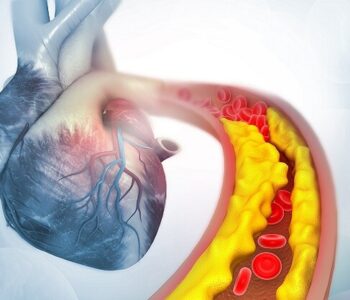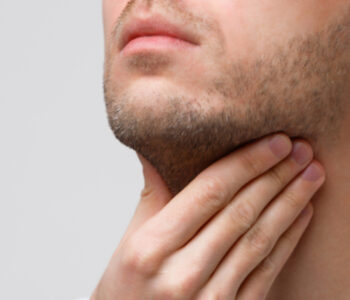In 30 seconds…
Selenium is a key mineral in your diet which may reduce the risk of Alzheimer’s, some cancers, and cardiovascular disease. It also promotes a healthy thyroid and hairline. Selenium can be found in food such as eggs, seafood, and Brazil nuts, as well as Selenium supplements.
Selenium: Introducing This Key Mineral
You may have heard of selenium. It’s one of the key minerals that you need in your diet. But with so many of these out there, it can be pretty tricky to tell the legit health benefits from the hype.
In this article, we explain all you need to know about selenium’s benefits for your body and brain. Backed by the scientific evidence, we’ll talk you through why you need this crucial element – and we’ll let you know exactly how much you need, too.
What is Selenium?
First thing’s first: what is selenium? Found in soils and water – and in many plants and animals – selenium is a naturally occurring mineral that your body needs to function. As your body doesn’t produce selenium itself, you need to get enough through your diet.
Usually, that’s simple enough. But the trouble is that selenium isn’t equally spread all over the planet. Some regions – like the US, Canada, and Japan – enjoy selenium-rich soils. Others, including parts of New Zealand and China, hardly have any naturally occurring selenium. Many of those countries deliberately import grains rich in the mineral.
In the UK and Europe? Levels of selenium are actually pretty low – and studies have suggested they are getting lower. That might mean you’re not getting all the selenium you need.
How Much Selenium Do You Need?
According to the NHS, men need 75 micrograms (mcg) of selenium each day. Women need less, just 60mcg. However, average consumption in the UK remains much lower than the recommended daily allowance (RDA). It’s thought that the average selenium intake among adults in the UK is only about 39mcg daily.
Find out more: How much selenium do you need per day?
While many don’t get the right levels of selenium, it is possible to get enough through food sources, including:
- Brazil nuts. A crucial mineral source, Brazil nuts are rich in selenium. One nut can contain as much as 48mcg.
- Eggs. One poached egg contains as much as 21mcg of selenium.
- Seafood also has a high selenium content. 100mcg of tuna contains 47mcg.
- Pasta, rice, bread, cheese and some meats are good sources of selenium too. And if you’re struggling to get enough of the mineral, you could try selenium supplements, dietary supplements that help you avoid any gaps in your dietary needs.
Selenium Benefits: 6 Key Ways It Boosts Your Health
What are the benefits of selenium? Now you know how much you should eat, let’s take a look at how selenium helps.
Here are 6 ways selenium can boost your health, according to scientific studies and medical advice.
1. Selenium may help your immune system
Your immune system is the name for all the processes, cells, organs, and tissues that your body uses to protect itself from disease, infection, and damage. In various ways, selenium helps keep these different processes happening as they should.
- Selenium lowers oxidative stress. Oxidative stress is caused by free radicals, molecules in your body that can damage cells and affect your inflammatory response. Antioxidants like selenium reduce the number of free radicals, in turn reducing inflammation.
- Medical reports have shown that selenium deficiency is associated with a slower immune response. Getting enough ensures your body is responding to threats as it should.
- Studies have reported that selenium supplementation can help those suffering from hepatitis C, tuberculosis, and influenza. It may lead to an improvement in symptoms of HIV too.
2. Selenium is crucial for your thyroid
One of selenium’s most important benefits is for the thyroid, the butterfly-shaped gland in your neck that produces hormones crucial for a healthy metabolism.
Low selenium has been linked to reduced thyroid function and hypothyroidism (when not enough thyroid hormones are produced). Selenium deficiency is also associated with an increased risk of autoimmune diseases related to the thyroid gland, such as Graves’s disease and Hashimoto’s.
Selenoproteins, namely proteins synthesised from selenium, are crucial for overall thyroid health.
Learn more: Underactive Thyroid Symptoms in Men
3. It could protect against cardiovascular disease
There is evidence that selenium can help reduce your risk of heart disease. Clinical trials, for example, have shown that increased blood levels of selenium may reduce the chance of adverse cardiovascular events – such as heart attacks or strokes – by as much as a quarter.
This is thought to be once more down to the role that selenium plays in reducing oxidative stress. However, more studies here are needed.
4. May reduce your risk of cancer
According to one large study, the lower your blood levels of selenium, the greater your chances of developing prostate cancer, lung cancer, and breast cancer.
However, beyond the headline, other studies have suggested that the link between selenium and cancer risk is much less certain than it might seem. One study, for example, even claimed that high selenium levels might increase the risk of skin cancer.
While things look pretty hopeful, the link between selenium status and cancer prevention does need more research.
5. It can protect against hair loss
Something a bit more certain: selenium is crucial for the health of your hair. Selenium is one of the many minerals that contribute to the healthy growth of hair, while it’s also responsible for hair pigmentation. That means if you’re experiencing greying hair at an early age, low selenium may be to blame.
Importantly, low selenium levels have been shown to cause hair loss. However, too much selenium – often the result of over-supplementation – can cause hair loss too.
Read more: Vitamins for Hair Loss
6. It may help slow cognitive decline
Research has shown that people who have Alzheimer’s disease have lower levels of selenium.
Meanwhile, there is evidence that suggests that increasing selenium may improve cognitive function. Supplementation with a single Brazil nut a day was found to increase verbal fluency, while another study found vitamin supplementation improved executive functioning.
More research is needed, but the results of these observational studies seem promising.
A Note on Selenium Toxicity
While many people across the UK – and further afield – are deficient in selenium, you must be sensible when taking selenium supplementation and other multivitamins.
That’s because selenium toxicity – or selenosis, when you have too much selenium in your system – can have serious adverse effects on the human body. These can include:
- Hair loss
- Lethargy
- Fatigue
- Motor weakness
- Pins and needles.
Selenium toxicity can be severe. When taking dietary supplements, always stick to the RDAs.

Help your body fight the good fight
Supplements are all-important when it comes to keeping your health at its best. All our health supplements are formulated by our medical team and packed with the best ingredients out there.
Key Takeaways
Possible selenium benefits range from helping to prevent hair loss to reducing your risk of various forms of cancer. That’s largely thanks to its antioxidant properties, which help bolster your immune system.
Make sure you’re getting all the selenium you need. Brazil nuts are a great source of this crucial mineral. Selenium supplements can be hugely beneficial too.
FAQs
What is Selenium?
Selenium is a naturally-occurring mineral which your body cannot produce, but needs to function. Some countries have soil rich in Selenium, whilst others (like those in Europe) do not. Selenium is beneficial for hair and thyroid health, and may help fight some diseases and cancers.
How much Selenium do I need?
Men require about 75 micrograms (mcg) of Selenium per day, whilst women need about 60mcg. The average intake in the UK is only about 3.9mcg per day. However, be careful, because consuming too much Selenium can be toxic.
What food contains Selenium?
Brazil nuts are naturally rich in Selenium: eating two nuts a day covers your entire recommended intake. Other foods rich in Selenium include eggs and seafood. If you’re struggling to get all the Selenium you need, you could try taking Selenium supplements.
What are the effects of Selenium poisoning?
Whilst most people in the UK are Selenium-deficient, too much Selenium causes selenosis, signs of which include: hair loss, lethargy and fatigue, motor weakness, and pins and needles.












